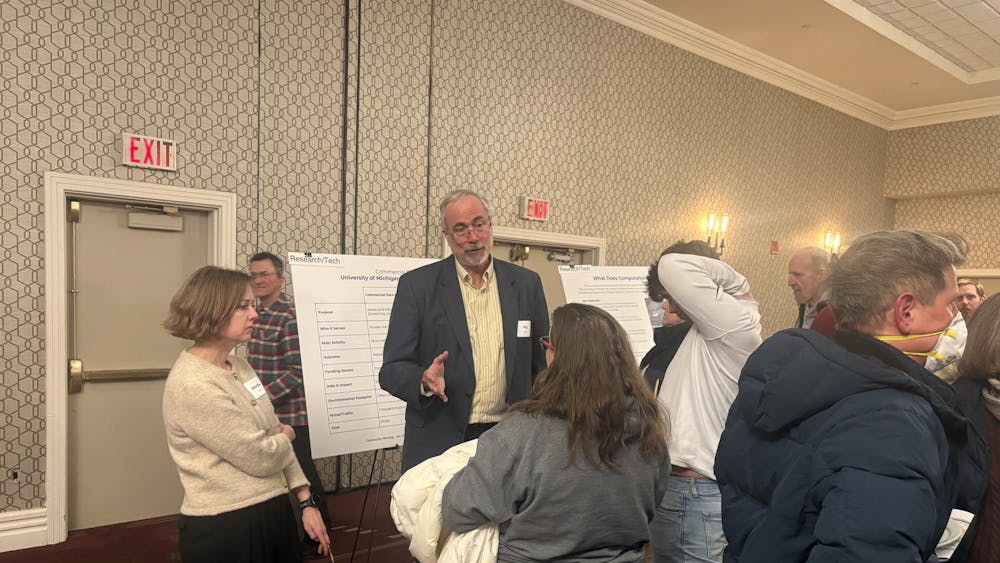These days, people have more to worry about than just their exes stalking them on Facebook: Employers, schools, law enforcement agencies and even branches of the U.S. military are using Facebook as a way to check up on people — and in some cases there have been severe repercussions.
Facebook posts have contributed to losses of jobs or job offers, bans from universities, jail sentences, divorces and other-than-honorable discharge from military service.
Eastern Michigan University nursing student Samantha Nameth said she is careful about what she posts on her Facebook profile because she knows it could cause problems in the future.
“I am actually thinking about deleting [my profile] once I get into the real world just because of issues that I’ve known people to have … like job searches. I don’t want that to be a factor in not being hired for some reason,” Nameth said.
Recently, some employers have taken to asking job applicants for their Facebook passwords to view profile pages set to private. However, Congress and state legislators in California, Illinois, Maryland, Michigan and Minnesota have enacted or are considering enacting bans on such invasive practices.
EMU Department of Public Safety Detective Joe Braunschneider said it’s no secret that police departments across the country are using social media websites in criminal investigations, and viewing a suspect’s Facebook page is becoming a standard DPS practice.
“It never ceases to amaze me the things that they ‘advertise’ about themselves, even if it incriminates them,” Braunschneider said.
He said when suspects set their pages to private viewing, a search warrant must be served on Facebook to obtain access to the page.
“If the case is serious enough we can obtain the search warrant and serve it electronically on Facebook, and they would supply us with the information,” Braunschneider said. “The information that police are seeking is listed in the search warrant, so if that information is there and we seize it, it is admissible in court.”
Braunschneider said a search warrant will also supply police with a person’s real name when the individual uses an alias for their profile name.
Facebook’s information page for law enforcement authorities reads, “A search warrant issued … showing … probable cause is required to compel the disclosure of the stored contents of any account, which may include messages, photos, videos, wall posts and location information.”
Facebook Pan-Euro Communications Manager Iain Mackenzie said the company has a team that works with law enforcement agencies when there is evidence of criminality on Facebook, and there are legal procedures common with online services that have to be observed.
“We don’t share information on the number of cases that are dealt with, or the size of that team,” Mackenzie said.
He said Facebook also will not discuss response times to law enforcement information requests, but the company does have an expediting procedure for emergency situations.
“Some matters are expedited when there is a credible threat of violence or if an individual is in imminent danger. When alerted by law enforcement to such cases, we typically deal with them in minutes,” Mackenzie said.
In October 2011, Former EMU student Robert David Moore, 23, was arrested for writing threatening graffiti on EMU property; his Facebook profile and posts he made on the website aided the DPS in their investigation.
In one instance Moore had written, “Don’t peer pressure me to bring a gun to EMU. Stop gossiping and labeling people you don’t know, or I will kick your ass! -Shadowcat,” in a men’s bathroom in Halle Library.
Moore had repeatedly used the moniker Shadowcat, which is the name of a Marvel Comics character from the popular “X-Men” series, in his graffiti around campus.
After roughly five months of finding Shadowcat graffiti around campus, EMU DPS caught a break in the case on Sept. 6, 2011, when a threatening handwritten note mentioned EMU student Justin Beaudrie by name. When DPS officers questioned Beaudrie as to whether he had recently had any problems with anyone, he named Moore.
At that point, DPS officers reviewed Moore’s Facebook profile page and found numerous references to the Shadowcat character, parallel grammatical, punctuation and spelling errors consistent with the graffiti on campus, as well as similar quotes of feeling isolated and persecuted.
During his initial DPS interview, Moore said he didn’t really mean what he wrote, but was angry and frustrated with how people judged and labeled him and didn’t know how to express those feelings to the people responsible, so he wrote it on walls.
Washtenaw County Deputy Chief Assistant Prosecutor David King said Moore was charged with filing a false report or threat of bomb or harmful device, which carries a maximum penalty of four years in prison.
“The prosecutor agreed not to charge a stalking case involving Justin Beaudrie, [and] the Circuit Court promised to sentence defendant to no upfront jail time,” King said.
Moore, a native of Flint, pleaded guilty in November 2011 to the felony charge and in January was sentenced to two years probation, ordered to pay restitution, barred from EMU property and to have no contact with Beaudrie.
EMU international affairs student Ugbaad Keynan said she had a Facebook profile, but deleted it because she felt it was a waste of time.
“It seemed really pretentious and stupid—I felt stupid. I never put too much information on there because I knew it was the Internet and that stuff never really goes away,” Keynan said. “You try too hard to make an image for yourself and you’re portraying yourself in the way you want to be perceived and that’s not always the best way.”
On April 25, the Navy Times reported Marine Sgt. Gary Stein was dismissed with an other-than-honorable discharge, by unanimous recommendation of an administrative separation board, for posting, “Screw Obama and I will not follow all orders from him,” on a Facebook page used by Marine meteorologists.
Stein also posted that President Barack Obama is a coward and said anyone who votes for his re-election is a socialist.
The board said Stein’s comments were detrimental to discipline and violated military law.
Stein later refined his remarks, saying he wouldn’t follow orders from the president that were unlawful.
“I love the Marine Corps, I love my job. I wish it wouldn’t have gone this way. I’m having a hard time seeing how 15 words on Facebook could have ruined my nine-year career,” Stein told The Associated Press.
Stein argued he was exercising his right to freedom of speech and the Facebook comments should have been protected under the First Amendment.
But at Stein’s hearing at Camp Pendleton in April, military prosecutor Capt. John Torresala said Stein repeatedly violated Pentagon policy and ignored warnings from his superiors about the Facebook postings, The Associated Press reported.
U.S. military has had a policy limiting the free speech of service members, including criticism of the commander-in-chief, since the Civil War.
In Clayton, Mo. Clayton High School principal Louise Losos took a leave of absence in April stemming from accusations that she was “friending” Clayton students using a false Facebook profile under the name “Suzy Harriston.”
Losos was exposed April 5 when 2011 Clayton graduate Chase Haslett posted, “Whoever is friends with Suzy Harriston on Facebook needs to drop them. It is the Clayton Principal,” according to the St. Louis Post-Dispatch.
The Harriston account disappeared shortly thereafter and Haslett wouldn’t say how he knew, but the following day the School District of Clayton announced Losos was taking a leave of absence.
The Los Angeles Times reported Clayton School District officials refused to answer questions about the principal’s leave of absence, citing a legal confidentiality agreement that prevents further litigation between the parties and called for Losos to resign effective June 30.
The agreement gave her a $140,000 settlement, which equals the equivalent of a year’s pay and benefits for Losos, but the agreement failed to clarify if she indeed created a false account to befriend students online.
Regardless of how readers may feel about these individual examples, it would behoove people to think twice before hitting “enter” on each and every Facebook post; things on the Internet have a tendency to show up in the darnedest places and hang around a lot longer than people think.










